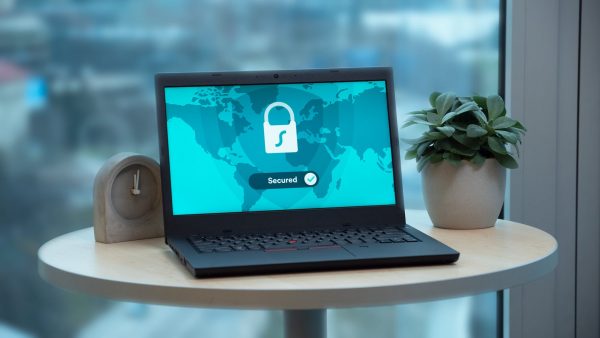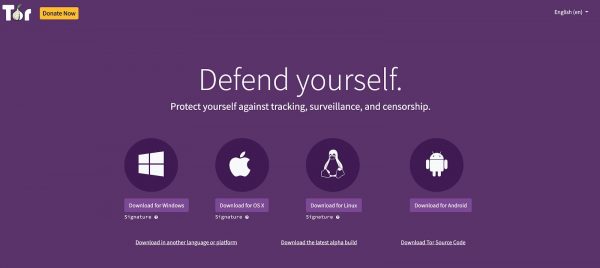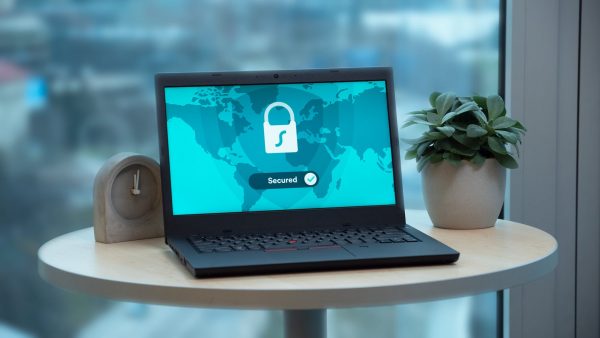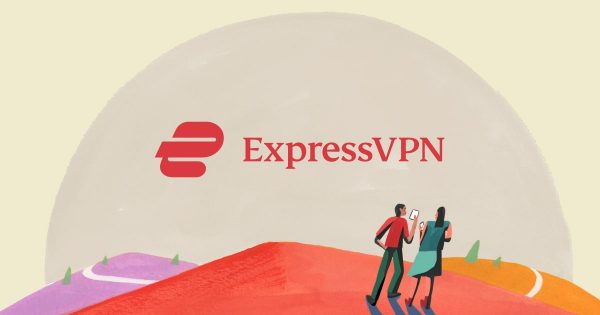What Is Onion over VPN? A Look into the Security Technique
Most people are familiar with the concept of VPN and The Onion Router (Tor), but what is Onion over VPN? Onion over VPN refers to the use of a VPN and Tor simultaneously. These services enhance your online privacy, security, and anonymity when accessing the internet and the so-called “deep web.” Let’s take a look at the inner workings of the Onion over VPN security protocol.

What Is Onion over VPN?
Onion over VPN, also known as Tor over VPN, is a privacy solution that protects and anonymizes online traffic. It combines the functions of a virtual private network (VPN) and The Onion Router (Tor) into one. A user first connects to a trusted VPN before sending the data through an anonymous Onion network.
Directing the connection through VPN and the Onion network leaves your data with four layers of encryption. That includes a single layer from the VPN and three from the Onion network. These layers of encryption are peeled off slowly as the data is transmitted, up until it reaches the intended destination on the internet.
What Is a VPN?

A virtual private network (VPN) is a service that routes your data and personal information through an encrypted tunnel to allow it to be deposited to its intended destination on the internet safely. The service first encrypts your data at the source, then sends it to a server through an encrypted tunnel. It masks your IP address and location with that of the IP address and location of the VPN server. It leaves your VPN’s information visible instead of yours. The data is then sent through an encrypted tunnel towards its intended destination on the internet.
The masking of your IP address and location helps to ensure your privacy online. At the same time, your data is sent through an encrypted tunnel to prevent external entities from seeing or grabbing your data on the way to its intended destination.
Aside from keeping you protected while browsing the internet normally, VPNs also allow you access to websites and services that ISPs, websites, and governments restrict. It makes VPNs the perfect go-to service for fighting against government surveillance and censorship.
If you want to start using a VPN, we highly recommend trying ExpressVPN. ExpressVPN is one of the more comprehensive VPNs in the market, with many novel features, including split tunneling, a dedicated router app, and its Onion over VPN service. It also offers complete privacy for your data and a minimal reduction in internet speeds. To know more, here is a comprehensive review of the features and benefits of ExpressVPN.
What Is ‘The Onion Router’ Browser or Tor Browser?

The Onion Router, abbreviated as “Tor,” is an open-sourced web browser. The service allows you to surf the internet, including hidden areas not accessible to standard browsers, called the deep web. The browser automatically encrypts your browsing history, then deletes it following every surfing session.
The Tor network consists of countless “nodes” or “relay points,” each of which is a computer of a user on the network. The system encrypts your data in multiple layers of encryption. These layers of encryption are then peeled off one by one as the data passes from one node to another, hence the onion metaphor. Your IP address and data remain completely anonymous from the point of origin to the intermediary nodes.
By default, the Tor network sends your data through three layers of decryption. These nodes include an entry node, a middle node, and an exit node, each of which is randomly selected. Each node or relay point peels off another layer of encryption until it reaches the exit node. Upon reaching the exit node, the Tor network peels off the final layer of encryption before delivering the data to the server.
The use of the Tor browser is in itself completely legal in most countries. However, a few of the more autocratic and censorship-heavy countries like China and Russia have permanently blocked the service to prevent its use for illegal activities.
VPN vs. Tor Browser: What’s the Difference?

Both VPN and TOR protect your data while masking your public IP address. However, the two radically differ in the specifics of their use and their manner of execution.
For starters, the Tor browser makes use of a vast network of independent nodes. These nodes keep any identifying information and location completely inaccessible to outsiders. The anonymity component of Tor makes it ideal for sending highly sensitive or confidential information.
On the other hand, VPNs are designed to provide a non-specific or blanket-type form of online privacy. As such, you are much better off using VPNs for day-to-day tasks like browsing the internet, sending online communications, banking, and so on.
Another difference has to do with the manner of operation. Tor relies on a decentralized layer of nodes to transfer data without revealing any information about the source. On the other hand, VPNs connect to a central server via an encrypted tunnel. This is the complete opposite of the Tor network, which has to bounce off data from one node to another. Another difference is that there are multiple VPN services available, but there’s only a single Tor browser.
How Does Onion over VPN Work?

Now that we have differentiated a VPN from an Onion browser, and the main differences in the way they work, we can already proceed to how they work together in a complementary fashion. Here’s how the Onion over VPN works:
- Once you are connected to the VPN server, the server will encrypt your data. Additionally, it will mask your IP address with the server’s IP address.
- If you open the Tor browser with an active VPN, the Tor network will further encrypt the data with three additional encryption layers. By this point, the Tor network will then wrap your data with an additional four layers of encryption.
- The encrypted data will be sent through to the VPN server. It will be decrypted while the masked IP address remains in place and the Tor encryption remains in place.
- The encrypted data will then enter the Tor network; it will pass through three Tor relays or nodes. Each node will peel off a single layer of encryption before passing it onto the next node. It’s important to note that the first layer of encryption (IP address masking) remains intact as the data passes from the entry node to the exit node.
- The next step depends on the website you are trying to access. If you are visiting the deep web or dark web, your data will only undergo decryption upon arrival at the website. However, if you are surfing online over the “surface” internet, then your data will undergo decryption right when it reaches the final node or Tor exit node.
How to Access Onion over VPN?

The process of connecting to the internet or the deep web with Onion over VPN is not unlike stepping out into the rain with a raincoat and umbrella. It’s simple to do and is a lot more effective compared to using just an umbrella or just a raincoat. Here is how you can activate Onion over VPN:
- Sign up for a VPN service. Make sure that the VPN has adequate coverage, reasonable features, and a strict no-logging policy. One of the best options you can get, both feature-wise and security-wise is ExpressVPN.
- Download and install the VPN client on your device. Your VPN provider will either send you a download link via email or request you to download the software through the app store. Once you’ve installed the app, you can already connect to any server you prefer.
- Go to the Tor official website and download the latest version of the Tor browser. The browser has versions available for Windows, macOS, Linux, and Android. After installing the browser, launch the program and then connect to the Tor network.
Why Should You Use Onion over VPN?

Bypassing your data through a VPN server before reaching the Tor network, the system provides an extra layer of protection whenever you access the internet and its hidden portions, the deep web. It combines the anonymity of Tor and the privacy and security of VPN into a single service. This, in turn, allows you much better security, privacy, and anonymity while surfing the web.
You will also not have to worry about getting flagged by your ISP provider for using Tor. The VPN keeps your traffic under wraps, so the ISP will only be able to see the external portion of the package and not its contents. In other words, it’s one way to gain access to the Tor network in cases where your country or your ISP prohibits access to it. Even your VPN can’t see your activity or the websites you visit.
From the end of the Tor network, any Tor exit node watching the network will not be able to know your IP address. The VPN obscures your IP address even as the To network decrypts your data and offloads it into its intended destination over the internet. In other words, your data might be visible between the Tor exit node and the destination. However, that exit node will never be able to track the data back to your IP address.
What Are the Disadvantages of Onion over VPN?

While Onion over VPN certainly comes with many advantages, it’s not without disadvantages. For starters, the heavy encryption can lead to extremely slow internet speeds, with the turtle-like transmission of messages and files. In addition, there’s a chance that you will not be able to control your IP address as your data bounces off different servers in the process.
It’s also worth considering that some websites block exit nodes, and this means that there’s a chance that your request for data will fall through because of the Tor browser. Additionally, a less-secure VPN service can track your IP address and data requests from the get-go.
These considerations conclude that Onion over VPN is best left for special occasions but not casual internet browsing. That is, you should only use it when you need to send sensitive data transmissions and when you need to access the deep web.
Onion over VPN or VPN over Tor?

If Onion over VPN connects to a VPN before connecting to the Tor network, the reserve is also possible, and it’s called VPN over Tor. As the name suggests, the connection first transmits your data through the Tor network. Afterward, the VPN service will then forward the encrypted data to a remote server via an encrypted tunnel.
A VPN over Tor encryption will allow you to access websites that don’t normally support Tor-encrypted access, but it also comes with a few problems. First, your VPN provider will be able to see your IP address, leaving your VPN with an opportunity to track you over time without you knowing.
Second, the Tor exit node will leave your data exposed to the receiving website before its deposited in the appropriate location. In other words, anyone watching the Tor exit node can see both your data and your IP address. Not to mention, the VPN encryption will freeze your Tor circuit, which will further constrict your entire connection.
In summary, VPN over Tor is certainly possible to implement. However, the security protocol leaves too many loopholes for it to maintain your privacy and anonymity online effectively. Having said this, the Onion over VPN route remains the far superior option for keeping your data private and anonymous.
Who Should Use Onion over VPN?

Onion over VPN is an attractive option both for its simplicity and the security and privacy that it offers. However, that’s not to say that Onion over VPN is for everyday use, especially as it can radically slow down your internet speed.
The service is only ideal for people who work with sensitive or confidential information and those that require under-the-radar communications. The list includes journalists, activists, corporate workers, and government employees. It’s also ideal for people who live in countries with high censorship of internet activity (i.e., China and Russia).
And of course, Onion over VPN is also a great way to access websites on the deep web, including its much darker subsection, the dark web. The dark web may have a relatively negative reputation, but the reality is that it is a relatively safe place. Using the dark web only becomes risky when you try to conduct illegal activities or try to download files. Having said this, you will want to have Onion over VPN enabled each time you visit the deep web or the dark web.
But of course, only a limited number of people fall into these specific use cases. Most would fall into the greater population of internet users who use the internet for everyday tasks. If you are only browsing the internet, playing games, or responding to emails, you might be better off using the standard encryption offered by your VPN on top of a secure web browser instead of Tor. As for your emails, you would want to use a secure email provider.
Which VPN Service Has the Best Onion over VPN Service?

Using Tor to gain access to the dark web might sound simple enough. However, it would help if you also had a reliable VPN to hide your Tor network usage from your ISP. Unfortunately, not all VPN services offer an Onion over VPN feature. Additionally, only a select few of those VPN services with Onion over VPN can connect seamlessly with the Tor network.
ExpresVPN: Best Option for Tor Browsing

There are many VPNs available in the market, and a few offer Onion over VPN. However, one service has its Onion over VPN service on top of a great feature set, security, and connectivity options. That option is none other than ExpressVPN. Launched more than five years ago, ExpressVPN’s Onion over VPN feature works alongside the Tor browser to prevent ISP tracking and Tor exit node tracking.
If you want to see how ExpressVPN fares in comparison to other popular VPNs, here are articles comparing ExpressVPN vs IPVanish and ExpressVPN vs NordVPN.
Excellent Tor Speeds
Additionally, ExpressVPN has a reputation for having some of the fastest connection speeds in the industry. That speed advantage is not compromised with its Onion over VPN feature. Additionally, Tor loads much faster with it compared to other VPNs.
Zero Data Logging
ExpressVPN is also one of the few VPNs that have been able to prove that they follow through with their no-logs policy. They make use of a privacy-inducing technology called “TrustedServer.” This technology uses RAM-only servers, which are only ever able to store the data that you need for any given time. Additionally, the configuration of the server deletes the temporary data permanently each time the server reboots.
This ensures that outsiders can recover any data from the servers under no circumstances. That is either in the event of a server seizure by the government or a data breach by hackers. It also ensures that all servers have the latest security patches.
Unblocking Capabilities
ExpressVPN also excels at circumventing geo-restricted websites and content. By changing your IP address and location, you can access geo-restricted content from streaming websites like Netflix, Hulu, and Amazon Prime. It can also unlock social media websites like Facebook and WhatsApp in countries that prohibit them.
Torrenting Support
Additionally, ExpressVPN openly supports torrenting files. It comes with great download speeds, unrestricted P2P file sharing, and high encryption strengths.
Final Thoughts on Onion over VPN

Nowadays, it seems as though every entity has some underlying interest in user data. That includes everyone from ISPs to search engines and websites to surveillance agencies, cybercriminals, and hackers. Regardless of how careful you are about leaving footprints online, you can rest assured that some entity or even person will be able to find traces of your activity.
With many threats emerging, it pays to be extra careful about your online privacy and security. VPNs and the Tor browser are great tools to protect your security and anonymity. Unfortunately, neither of these services covers all of your bases, as each has its vulnerabilities. As such, the best way to go about protecting yourself online is to use both services simultaneously.
The Onion over VPN technique isn’t perfect, and it doesn’t make it impossible to breach your data. However, the complementary role of the two services makes it harder for entities to track your activities. They also offer you easier access to information that would otherwise be censored or banned.
Since Onion over VPN is not a perfect solution, you will still need to take additional steps to keep your data safe online. One of the more essential steps you can take is to download and install an antivirus program. An antivirus program will scan your local files and downloads for any type of malware or virus.
Here is a list of the best antivirus software in the market right now.
The post What Is Onion over VPN? A Look into the Security Technique appeared first on Robots.net.